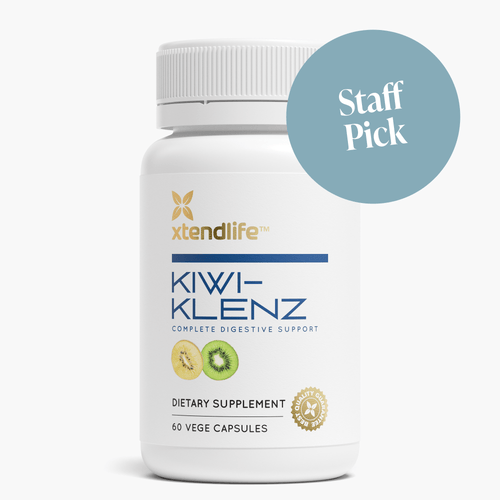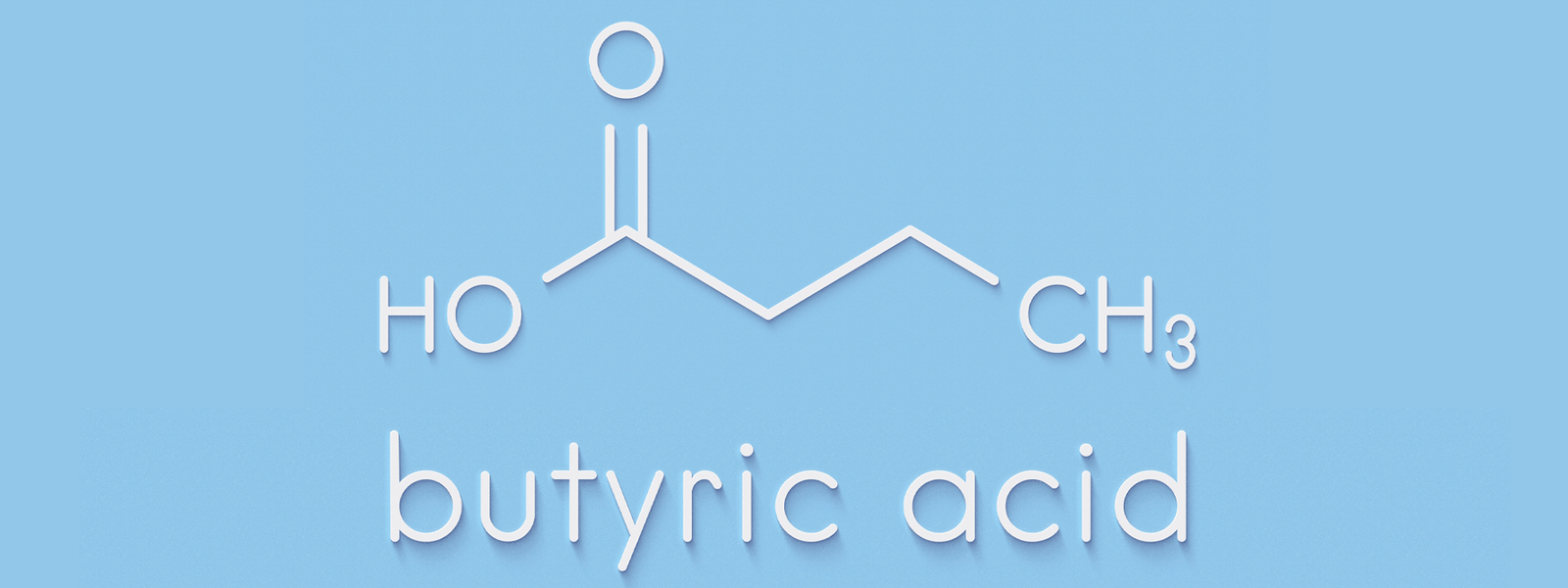Although probiotics and prebiotics sound very similar, the way the two function is very different.
Probiotics are live ‘good’ bacteria found in fermented foods such as yogurt, kimchi, kefir, kombucha, and sauerkraut. They are also available as supplements. Probiotics have been on the scene for some time, but recently we’ve become aware of their limitations. Some probiotics can be destroyed by the hydrochloric acid) in the stomach before they reach the small intestine, meaning we can miss out on many of the benefits.
Prebiotics are special dietary fibers found in certain fruits and vegetables. They cannot be digested by the human body. However, the bacteria in our gut can break these fibers down and ferment them. Leafy greens (spinach, lettuce, kale, chard, etc.), bell peppers, cabbage, apples, bananas, kiwifruit, and berries are great food sources that contain prebiotics. Consuming prebiotics is a more effective way to restore good gut bacteria. It can withstand the harsh acidic environment in the stomach and provides food for the good bacteria in our small intestine.
So, What’s So Good About Prebiotics?
Reason 1: Happier tummies
Tummy causing you trouble? Time to fill up on prebiotics.
Many common digestive complaints, including constipation, bloating, loose stools, and food allergies are the results of an imbalance in bacteria in our digestive system. By promoting the growth of good bacteria and inhibiting the growth of bad bacteria, prebiotics can help relieve many of those common digestive issues.
Prebiotics may also be beneficial in the management of ulcerative colitis, irritable bowel syndrome, and leaky gut syndrome.
If constipation is a problem, prebiotics can help improve stool quality (frequency and consistency). They also reduce the risk of gastroenteritis and infections, improve general well-being and reduce the incidence of allergic symptoms according to a report in The British Journal of Nutrition.[1]
Reason 2: Stronger Immunity
By promoting a healthier balance of gut microbiota, prebiotics can also help boost the function of our immune system. Our gut bacteria work in a number of ways to regulate our immune response [2]:
- Strengthening the integrity of the gut wall and preventing the passage of pathogens from the gut into the bloodstream
- Regulating inflammation
- Producing chemicals that destroy pathogens
Over 70% of our immune system is actually located in our gut! When you consider all the different foods and microbes our digestive system is continually exposed to, this actually makes a lot of sense.
A large number of studies have shown that consuming certain prebiotic foods can produce statistically significant changes in the makeup of the gut microbiota that help improve immunity.[3] Prebiotics may even help reduce your risk of cancer: a number of studies have shown that consuming more prebiotic foods can reduce the number of cancer-promoting enzymes and putrefactive (bacterial) metabolites in the gut.[4]
Reason 3: Healthier Weight
Watching what you eat and hitting the gym daily, but still, the scales aren’t budging? You might want to up your intake of prebiotics.
Numerous studies have shown that the composition of microbiota in our gut plays a significant role in the size of our waistline. The ratio of bacteria in our digestive system seems to impact how our bodies respond to a diet – and therefore how much weight we lose. Danish researchers studied the impacts of dietary intervention on 62 overweight adults with different ratios of the Prevotella species and Bacteroidesspecies of bacteria in their digestive system. After 26 weeks, the group with a higher ratio of Prevotella to Bacteroidesspecies of bacteria had lost significantly more body fat than those with a lower ratio - suggesting that the ratio of bacterial species in our gut is an important factor in weight loss.[5][6]
The makeup of our gut microbiota also impacts how we metabolize and utilize food. It seems that the gut bacteria of overweight people might be more efficient at extracting energy from food than lean people. Studies in mice showed that those with higher levels of the Firmicutes bacteria relative to the Bacteroides bacteria absorbed more calories from their food than those with a lower ratio - and they stored more of those calories as fat.[7] The same process is likely to be the case with humans.
In other words, two people with different gut microbiota who consume exactly the same food – and exactly the same number of calories – may use and store those calories differently.
Prebiotics then have the potential to help support our weight-loss efforts by changing the make-up of our gut bacteria.
Reason 4: Improved Cholesterol Results
Is there anything prebiotics can’t do? As if soothing your tummy, boosting your immunity, and helping control your weight wasn’t enough, prebiotics may also help you maintain healthy cholesterol levels.
It is prebiotics naturally high-fiber content that is responsible for their cholesterol-lowering benefits. Fiber acts a bit like a ‘broom’ for the digestive system, helping to clear out toxins, spent hormones, and excess LDL (bad) cholesterol. Without adequate fiber, these toxins and cholesterol are re-absorbed back into the circulatory system.[8]
Many prebiotic-rich foods (including oats, seaweed, legumes, and kiwifruit) contain a special kind of fiber called soluble fiber, which combines with water to form a gel or mucilage. This gel binds with excess cholesterol, toxins, and spent hormones in the digestive tract and helps remove them from the body. Without sufficient solubility these nasties are reabsorbed.[9] Foods high in soluble fiber can actually limit the absorption of LDL cholesterol.
To investigate the effects of prebiotics on cholesterol levels, Causey et al.[10] prescribed a group of men with elevated cholesterol to eat 20g of inulin from chicory root every day. After three weeks, the group had experienced a significant reduction in blood triglyceride levels. Another study produced similarly pleasing results with daily consumption of 10g of inulin for three weeks.[11]
Reason 5: Better blood sugar balance
We know that the balance of bacteria in our digestive system can influence how we metabolize and utilize food. But that’s just one piece of the puzzle – our microbiota also plays a huge role in insulin sensitivity and blood sugar balance.[12]
When we eat carbohydrates, the body releases the hormone insulin to transport the glucose (sugar) into our cells where it is utilized for energy. But if we consume large amounts of refined foods, sugar, or trans fats, our cells can become ‘desensitized’ to the effects of insulin - meaning larger and larger amounts of the hormone are needed to get the glucose into our cells.
Eventually, cells can become ‘insulin-resistant’ - meaning insulin is no longer able to transport glucose in. At this point, the person feels tired as their cells are not receiving energy, while at the same time, the excess glucose is stored as fat. Insulin resistance is recognised as a precursor to Type II diabetes and obesity.
The balance of bacteria in our digestive system appears to affect how our bodies metabolize carbohydrates and respond to insulin.[13][14] The chronic low-level state of inflammation created by a high-fat and sugar diet not only affects our balance of gut bacteria, it also causes our cells to become less sensitive to the effects of insulin.
By rebalancing our gut bacteria and dampening down inflammation, prebiotics can contribute to improvements in metabolic processes that are associated with both obesity and type-2 diabetes.[15]
Reason 6: Stronger bones
You might wonder what fibre has to do with building strong bones, but prebiotics and skeletal health are more closely linked than you might think.
A 2007 study in The Journal of Nutrition found that prebiotics can enhance the absorption of minerals, including magnesium, possibly iron, and calcium. All of these are crucial for retaining strong bones and preventing fractures or osteoporosis. In one study, just eight grams of prebiotics a day was shown to have a big effect on the uptake of calcium in the body which led to an increase in bone density.[16] So if you want to build strong bones make sure you don’t forget about prebiotics!

Kiwifruit – The Prebiotic Powerhouse
If you’re looking for a convenient way to increase your intake of prebiotics, there’s no better option than kiwifruit. Naturally high in soluble fibre, enzymes, and prebiotics, kiwifruit helps support digestive function and restore the balance of gut bacteria.
Unfortunately, most supermarket kiwifruit are artificially ripened to increase shelf-life - a process which also affects kiwifruit’s potency. In addition, you would need to eat the entire kiwifruit - flesh, seeds, and fuzzy skin for optimum digestive benefits and potency. Many of the therapeutic properties of kiwifruit are found in the tough fuzzy skin and seeds, however, most people only consume the flesh, meaning we miss out on many of the benefits.
Xtendlife’s Kiwi-Klenz product uses Kiwifruit Extract taken from New Zealand green kiwifruit. It retains all the nutrients from the skin, flesh, and seeds of kiwifruit with a high concentration of enzymes, phenols, and soluble fiber.
Kiwi-Klenz supports digestive function in four ways:
- Rich of prebiotics - to help feed good gut bacteria
- High levels of active Actinidin enzyme - to help break down food and unlock the nutrients from our diet
- High in soluble fiber - to keep things moving
- Phenols - discourage the growth of harmful bacteria in the intestines
References:
[1] Dr Axe. 7 reasons to get more prebiotics into your diet – plus best sources.https://draxe.com/prebiotics/
[2] Geuking MB, Köller Y, Rupp S, McCoy KD. The interplay between the gut microbiota and the immune system.Gut Microbes. 2014 May-Jun;5(3):411-8.
[3] Roberfroid, M et al. Prebiotic effects: metabolic and health benefits. Br J Nutr. 2010 Aug;104 Suppl 2:S1-63.. https://www.ncbi.nlm.nih.gov/pubmed/20920376
[4] de Vrese M1, Schrezenmeir J. Probiotics, prebiotics, and synbiotics. Adv Biochem Eng Biotechnol. 2008;111:1-66. doi: 10.1007/10_2008_097.
[5] M F Hjorth, H M Roager, T M Larsen, S K Poulsen, T R Licht, M I Bahl, Y Zohar and A Astrup. Pre-treatment microbial Prevotella-to-Bacteroides ratio, determines body fat loss success during a 6-month randomized controlled diet intervention. International Journal of Obesity advance online publication 10 October2017.
[7] Sanmiguel, C., Gupta, A. and Mayer, E. Gut microbiome and Obesity: A Plausible Explanation for Obesity. Curr Obes Rep. 2015 Jun (4(2):250-261.
[8] Edgson, V. and Marber, I. The Food Doctor: Healing foods for mind and body. London, 1999.
[9] Schlenker, E. and Long, S. Williams’ Essentials of Nutrition and Diet Therapy.Missouri, 2007.
[10] Causey JL, Feirtag JM, Gallaher DD, Tungland BC, Slavin JL. Effects of Dietary Inulin on Serum Lipids, Blood Glucose and the Gastrointestinal Environment in Hypercholesterolemic Men. Nutr. Res. 2000;20:191–201.
[11] Letexier D, Diraison F, Beylot M. Addition of Inulin to a Moderately High-Carbohydrate Diet Reduces Hepatic Lipogenesis and Plasma Triacylglycerol Concentrations in Humans. Am. J. Clin. Nutr. 2003;77:559–564. [PubMed]
[12] Sanmiguel, C., Gupta, A. and Mayer, E. Gut microbiome and Obesity: A Plausible Explanation for Obesity. Curr Obes Rep. 2015 Jun (4(2):250-261.
[13] Sanmiguel, C., Gupta, A. and Mayer, E. Gut microbiome and Obesity: A Plausible Explanation for Obesity. Curr Obes Rep. 2015 Jun (4(2):250-261.
[14] Caricilli, A. and Saad,M. The Role of Gut Microbiota on Insulin Resistance.Nutrients. 2013 Mar; 5(3): 829–851.
[15] Dr Axe. 7 reasons to get more prebiotics into your diet – plus best sources.https://draxe.com/prebiotics/
[16] Scholz-Ahrens, K., Ade, P. et al. Prebiotics, Probiotics, and Synbiotics Affect Mineral Absorption, Bone Mineral Content, and Bone Structure. The Journal of Nutrition, Volume 137, Issue 3, 1 March 2007, Pages 838S–846S, Scholz-Ahrens, K., Ade, P. et al. https://doi.org/10.1093/jn/137.3.838S


 Supplements
Supplements Superfoods
Superfoods Bundles
Bundles




















